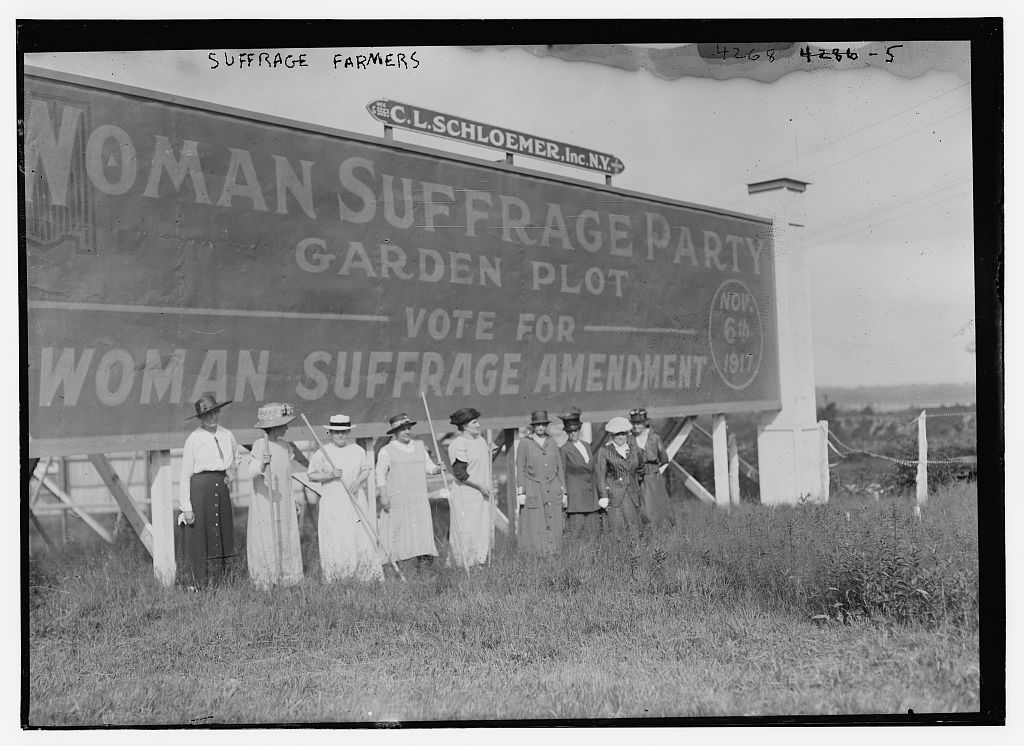
The Brandeis Brief from Muller v. Oregon, 1908
PBS.
For his work on pro bono cases, Attorney Louis Brandeis was known as “the People’s Attorney.” Brandeis defended Oregon state law, which set a ten hour maximum a woman could work in a day at a “mechanical establishment, or factory, or laundry.” Curt Muller was fined for working his female employees more than ten hours a day, which he appealed to the Oregon Supreme Court. In this case, Brandeis used sociological data and legal argument to address whether excessive labor led to ill health. This was the first time a lawyer had used sociological data to help make their case and would serve as a model for future cases using non-legal data. The case went to the Supreme Court and was decided in favor of the Oregon state law.

Suffrage Farmers
Photograph shows (left to right) Miss Rene Glogau, Chairman of the Agricultural Committee of the New York City Woman Suffrage Party; Helena Ries, Mrs. J.N. Dawson, Mrs. M. Barnes, Rose De Bella, Mrs. Daniel Appleton Palmer, Chairman of the Bronx Woman Suffrage Party; Mrs. Thomas B. Wells, Miss Mary Garrett Hay, and Miss Flora Hay. The suffragists are standing in front of a billboard supporting the woman suffrage amendment. (Photo Credit: Library of Congress)



